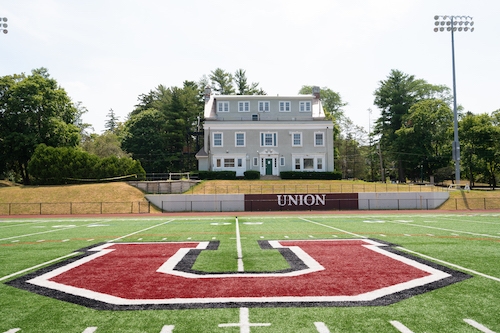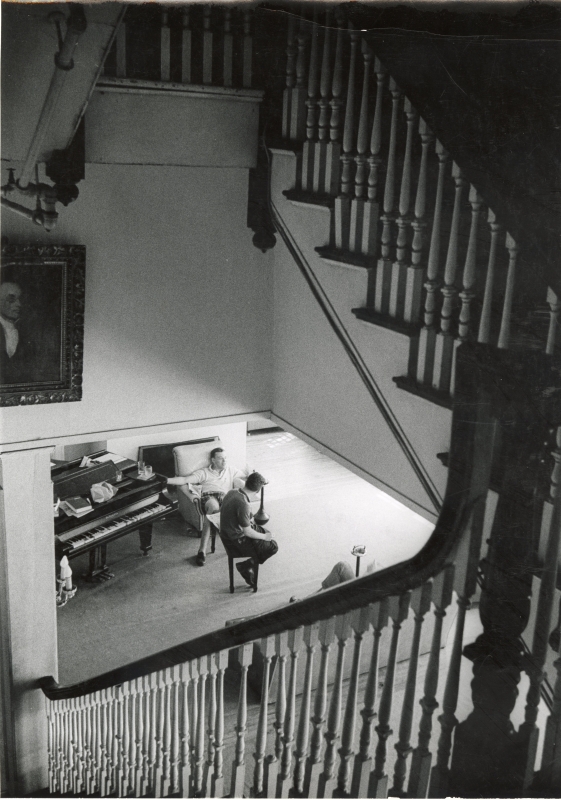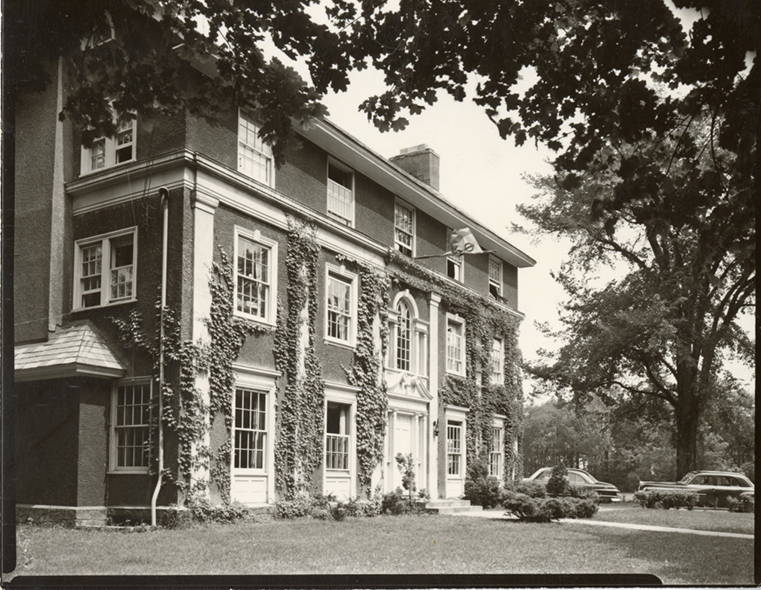The former Phi Delta Theta House, one of the iconic buildings on campus, will be torn down after years of being plagued by structural and mechanical issues.
Built in 1914 at a cost of $17,000, the house overlooking the 50-yard line at Frank Bailey Field has been largely vacant since 2012 after the chimney collapsed and the boiler malfunctioned.
“A structural review of the property found that the space is largely unusable,” said Marc Donovan ’05, director of Facilities and Campus Planning. “Unfortunately, the building would require significant investment to allow it to remain and be functionable in the methods we need for our community.”
Philip Boyce ’96, alumni president of the fraternity since 1999, said news of the demolition did not come as a surprise.
“It’s disappointing, but at the same time, none of us thought it would last as long as it has,” said Boyce. The fraternity counts more than 1,200 Union alumni as members.
The demolition of the house is in some way the final chapter for the storied fraternity, which was established at Union in November 1883 and preached “friendship, sound learning and moral rectitude.” It disbanded in 2017 due to declining membership. Edward Root, Class of 1887, was the first student to pledge Phi Delta Theta at Union.
Throughout its early history, the fraternity lived at various places both on and off campus before moving into its own house, with room for up to 30 members, in 1914. The fraternity signed a 99-year lease with the College for the Lenox Road plot.
In December 1948, the house was heavily damaged by a fire caused by a faulty furnace and rebuilt with substantial changes.
At its peak, Phi Delta Theta was one of the strongest fraternities at the College. During its 134 years at Union, it was recognized with numerous awards from the national chapter and from the College for its scholarship, participation in student activities and community service.
“You learn more than what you are taught in college by being in a fraternity,” said Boyce, a professional dog show handler who lives in Charlotte, N.C. “We are like an extended family.”
After the damage caused by the structural issues in 2012, the fraternity returned the property to the College a year ahead of its lease expiring and was provided with housing on Seward Place.
Over the last dozen years, as College officials explored other viable options for the property the condition of the aging home continued to deteriorate, creating a safety hazard. The cost of stabilizing, renovating and maintaining the property was prohibitive.
The demolition of the house is expected to begin next week and be completed by the start of the fall term. There are no plans for the space at this time. Boyce is working with College officials to have some type of plaque placed near the site to honor the fraternity’s presence at Union.
In the meantime, Boyce shared the news of the house’s impending demolition with the fraternity’s Facebook group. While some members are upset, many are simply nostalgic about their time at the house. For nearly a century, it was a place for students to socialize, participate in discussions with faculty and serve as an envious vantage point on football and lacrosse game days. It also hosted an alumni reception each year during Homecoming and ReUnion.
“It will be sad to see it go,” said Boyce, who lived in the house beginning in his sophomore year. “But I knew it was going to happen at some point. It was great when we had it, and I’m glad I had the opportunity to live there.”


